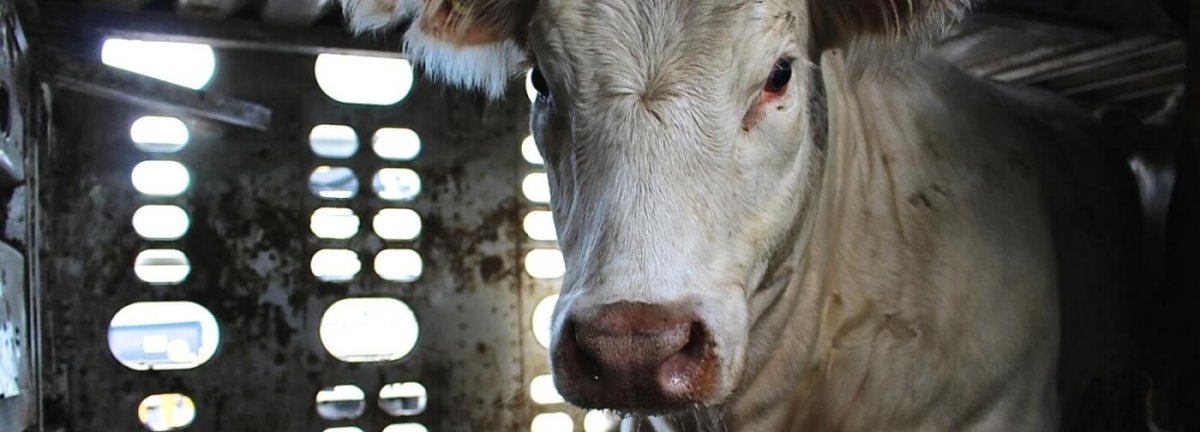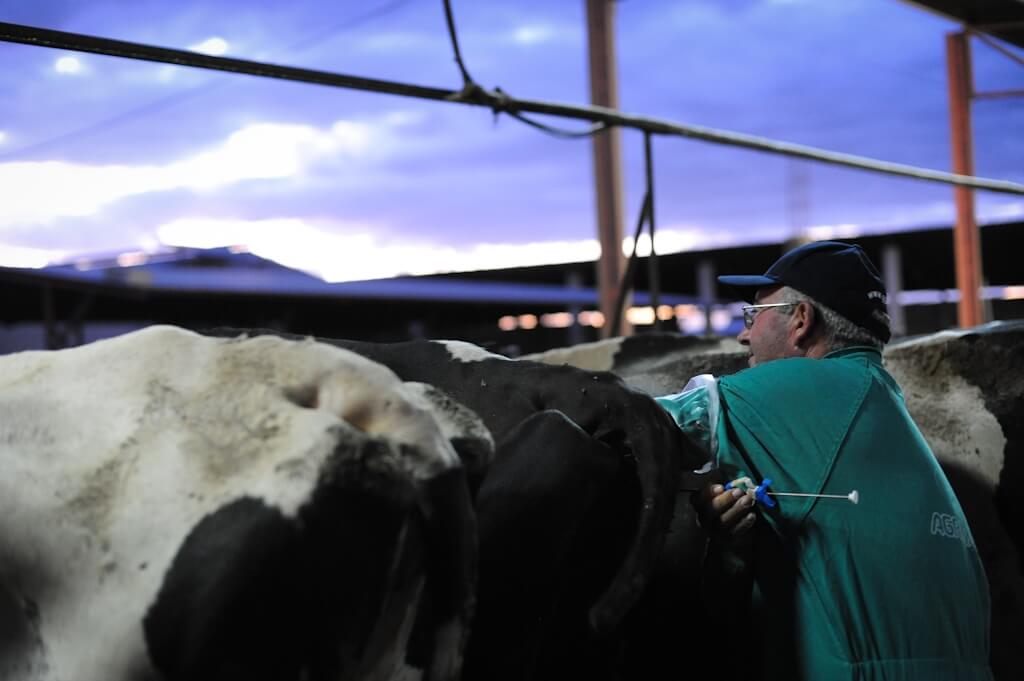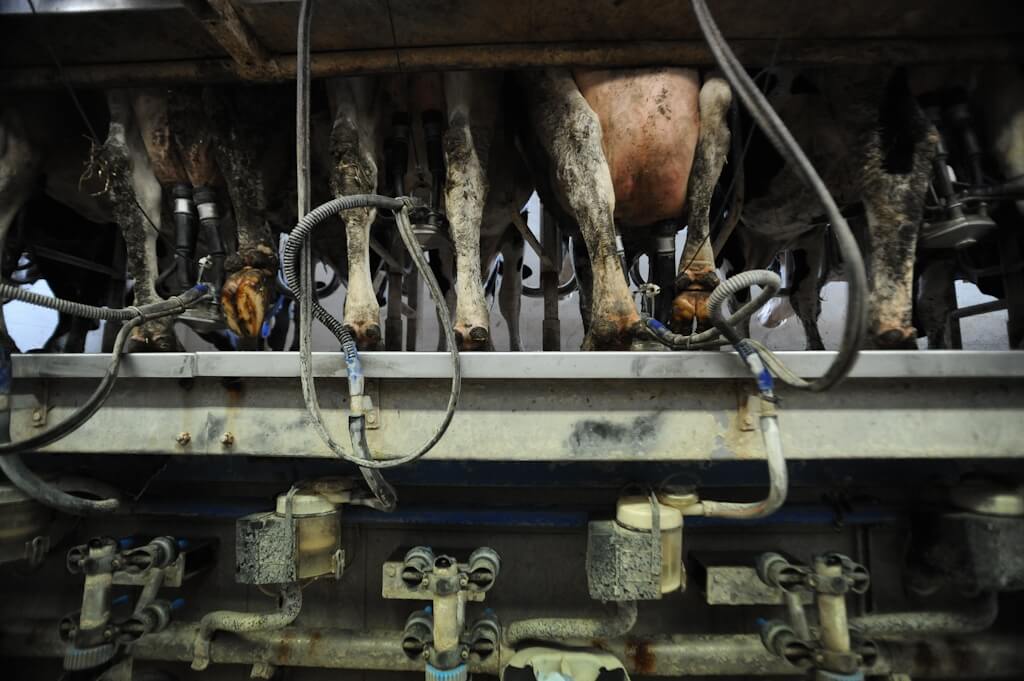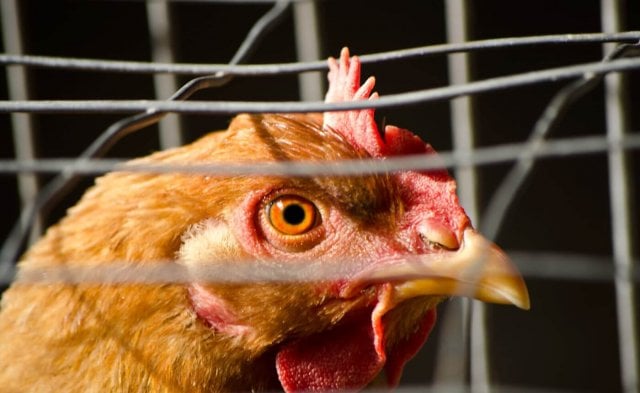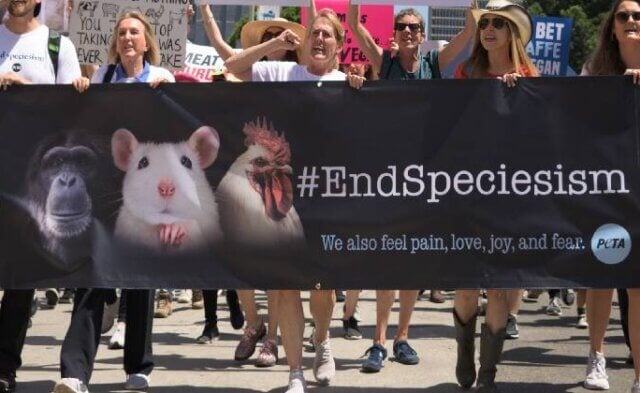By Tracy Reiman
Desperate times do call for desperate measures. Look at the beleaguered meat and dairy industries.
As more people wake up to the fact that the dairy industry traumatically separates newborn calves from their mothers and artificially impregnates cows in order to keep their milk flowing until finally their bodies wear out and they are sent off to be killed, they’re choosing not to be complicit in the cruelty.
As a result, sales of nondairy beverages—the kind made from plants and nuts, not stolen from cows—are off the charts, surging an astounding 61% in the U.S. since 2013.
And they’ve hit the dairy biz right in the balance sheet. Sales have plummeted 15% since 2012—more than a third of that in the last year alone—and the forecast, from the industry’s POV, is grim. With soy, almond and coconut milks flying off shelves; pecan, hazelnut and flax milks winning fans; and cashew and rice milks coming down the pike, the plant-based market is expected to generate more than $34 billion globally by 2024.
How has the dairy industry responded? Has it encouraged farmers to stay afloat by catching up with the times? No, it’s begging for a life preserver: It wants the U.S. Food and Drug Administration to bar those vegan “milk” businesses from using the M word on their labels.
It might surprise you that this is a proposal that PETA fully supports. If animal milk were put in a category all its own, and made to wear that word as a badge of shame, there would be no question which beverage is linked to cancer, obesity, mucoidal infections and appalling cruelty to animals. If it means udder secretions stolen from cows who are forced to spend their lives tethered to a machine and are slaughtered once their bodies give out, then “milk” will and should become a four-letter word.
It’s not just the dairy industry; the meat industry is in a tizzy, too.
Cows raised for meat are branded with hot irons and have their testicles ripped out of their scrotums—all without painkillers. Chickens are bred to grow so large so fast they can’t withstand their weight and often become crippled. Pigs are intensively confined and denied everything that is natural and important to them.
More consumers are avoiding the meat aisle, for these reasons and more: They now know that eating animal flesh can be deadly (it’s been tied to rising rates of cardiovascular disease, colorectal cancer, diabetes and obesity), ruins the environment, and is murder on cows, and they are reacting accordingly. Sixty percent of U.S. consumers have cut back on meat, and 55% of those say they’ve changed for good.
They’re buying plant-based meats, to the tune of over $670 million in the U.S. just in the last year. That’s a 24% leap, and sales could bring in $5.2 billion globally within two years.
Take a wild guess as to how all that’s gone over with the meat industry. All in a dither over what it calls “fake meat,” the U.S. Cattlemen’s Association wants the Department of Agriculture to limit the definition of “meat” to products derived from slaughtered animals.
Desperation, though, doesn’t sit well with everyone in the business. The cattlemen’s Hail Mary is opposed by the North American Meat Institute, whose stakeholders include Tyson Foods and Cargill, both high-profile names in the industry that have now invested heavily in plant-based companies. They’re smart to take the “If you can’t beat ’em, join ’em” approach, which may ultimately save their skins.
Desperate times call for desperate measures, but here’s a prediction: They’ll lead to a dead-end.
Call them whatever you want—vegan foods are healthy and humane, good for the environment, and they’re only growing, literally.

